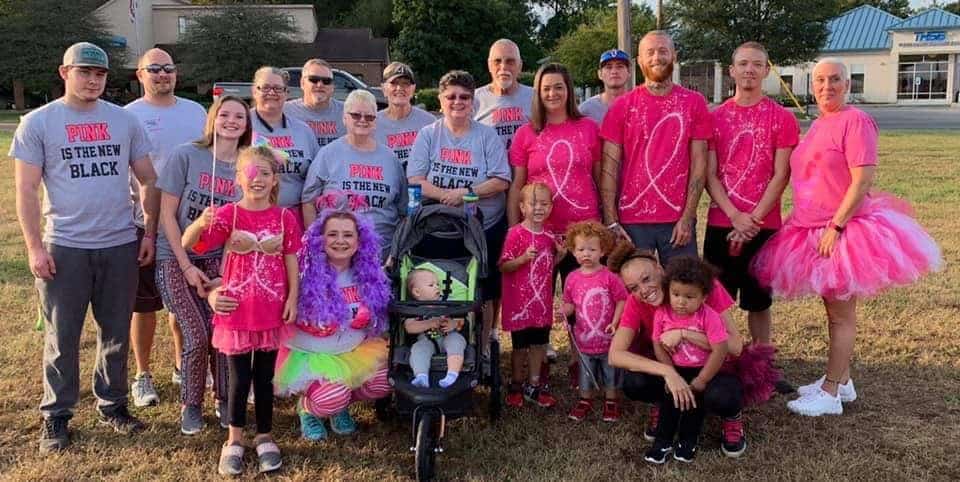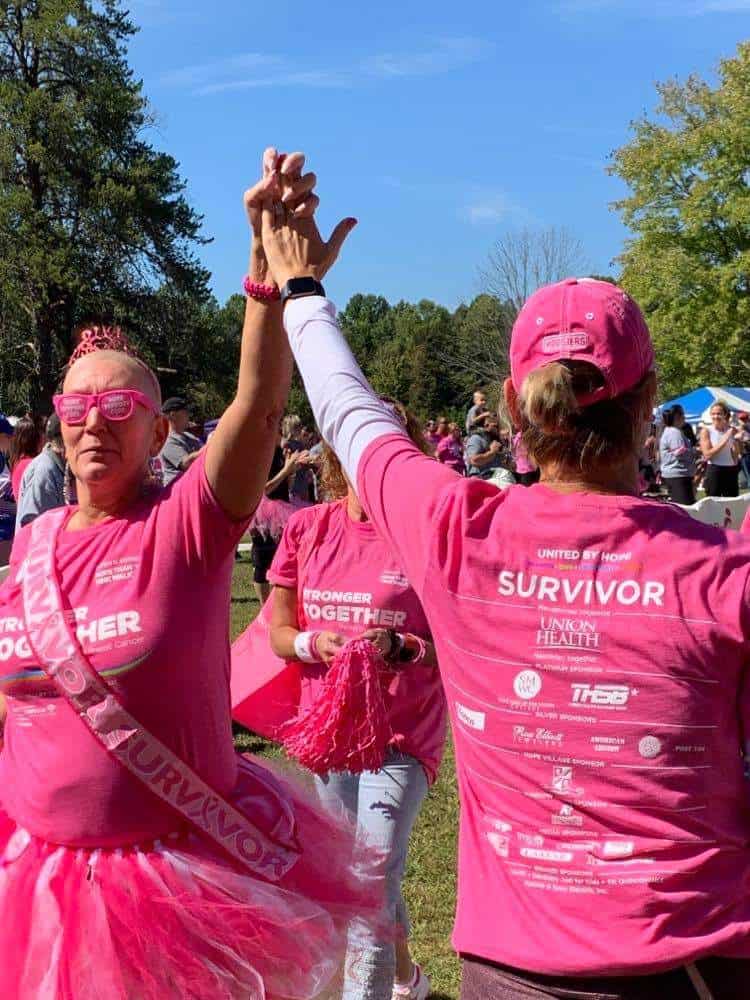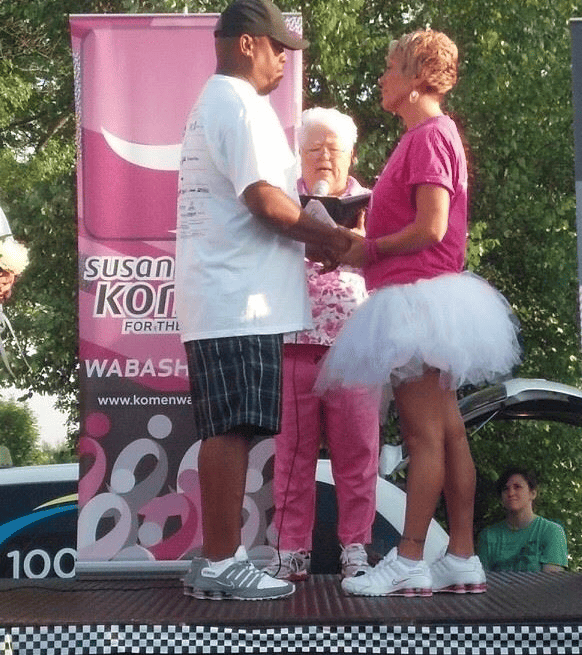
Tawnya Sheffield is no stranger to breast cancer. Sixteen women in her mother’s family have had the disease. In 2013, Tawnya learned she had breast cancer. This is her story in her own words.
The possibility that I could have breast cancer has always been in the back of my mind. After all, 16 women on my mother’s side have had the disease. I’ve always been diligent about getting regular checkups, and because of my family history, I began getting annual mammograms at age 30. They generally came back clear, but then in the summer of 2013, I received a call from my doctor. He found something that looked odd, and he wanted me back in for a biopsy.
Before I even made it home from the biopsy, the office called wanting me to come back. It was official – I had become the 17th woman in my mother’s family to be diagnosed with breast cancer. Shawn, my husband (then fiancé), was terrified, but I had been through this before. I came from a family of fighters. We would deal with the diagnosis – stage 2 invasive ductal carcinoma – and I would fight it. My biggest concern was that I didn’t have insurance at the time. In fact, my mammogram had been covered through support from Susan G. Komen.

Two days before my diagnosis, my cousin, Tracy, passed away from metastatic breast cancer. We were as thick as thieves and more like sisters than cousins. Unfortunately, she had been misdiagnosed initially, and by the time doctors realized she had breast cancer, it was stage 4. The beginning of my treatment was rough. Not just because of the surgeries, but because of the guilt I felt at having caught my cancer at an early stage when she had not.
I underwent a double mastectomy with reconstruction. My recovery was brutal; there were complications that required more surgery, but I got through it. I had a great support system of friends and family. We just trucked on through it. I did not require intravenous chemotherapy, but I took tamoxifen for five years following my diagnosis to reduce my risk of recurrence (coming back). I also did genetic testing and was shocked when I learned I did not carry a BRCA1 or BRCA2 gene mutation.

My family has always been very vocal supporters of Komen. My sister attended an advocacy summit in Washington, D.C., and I helped my family organize our team for the Wabash Valley MORE THAN PINK Walk. After my diagnosis, I wanted to get more involved, so I became the captain of my team Pink is the New Black. It’s a wonderful way to engage friends and family in the mission, and it’s just one of the ways I’ve been able to give back to Komen.
The Walk will always hold a special place in my heart. My husband and I got married on stage at the 2013 event, just two days before my double mastectomy. I never miss the Survivor Parade; it’s my favorite part of the Walk. It’s inspiring to see the number of people – some who are 40-year survivors – come together and celebrate the strength of the breast cancer community.



